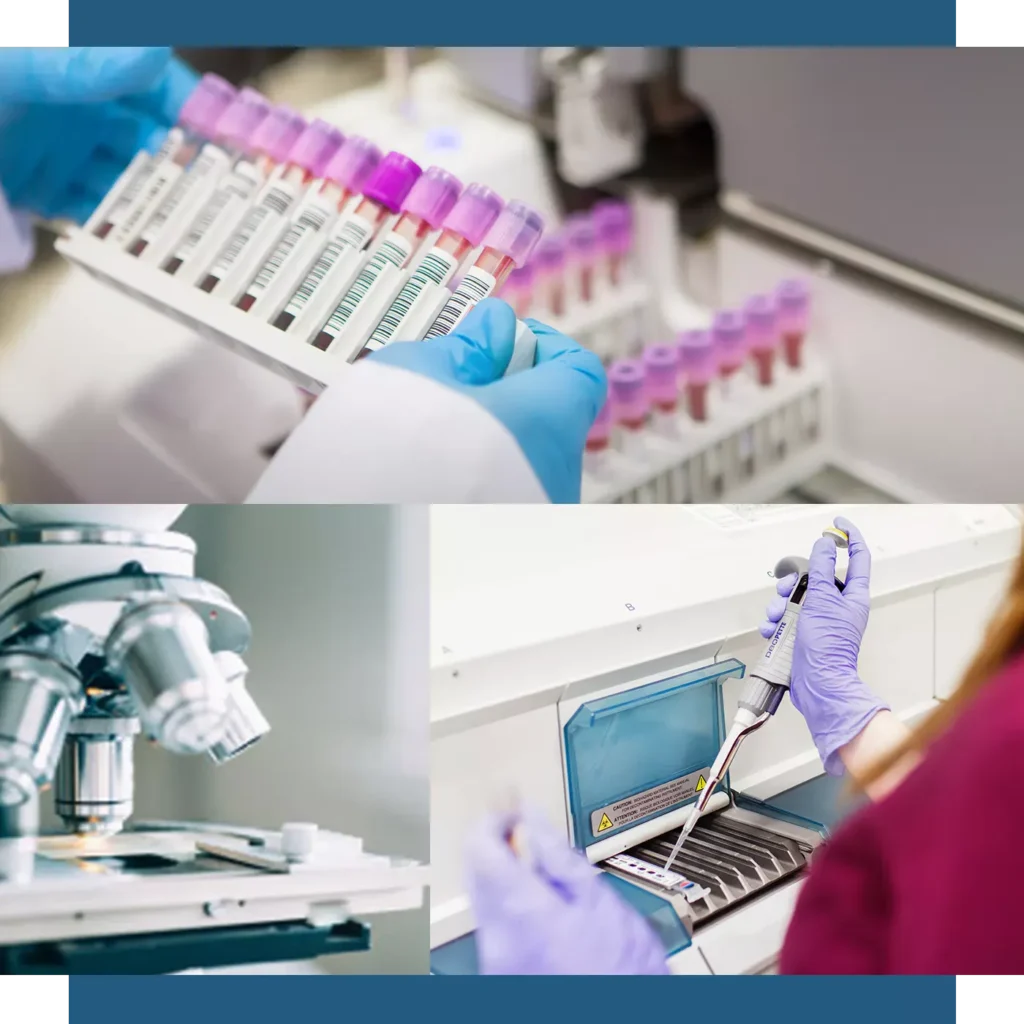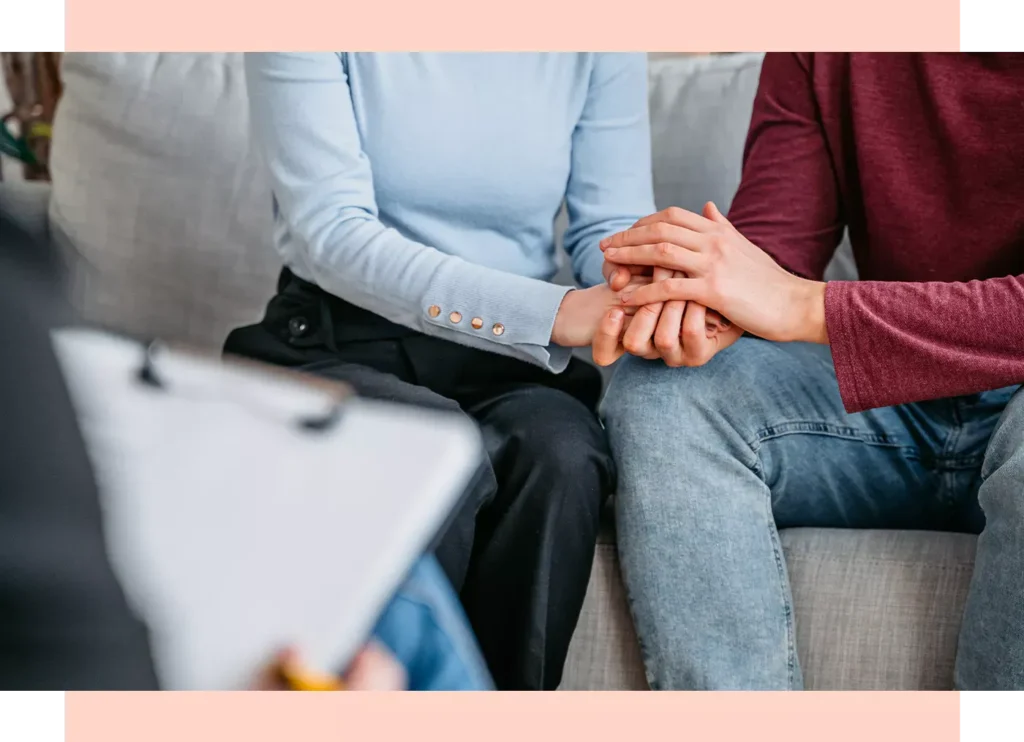Treatment with donor eggs
We offer egg donation to couples and singles who, for various reasons, cannot conceive with their own eggs.

Who can receive donor eggs?
Egg donation is an offer for couples and single women who, for one reason or another, cannot become pregnant with their own eggs.
What are the requirements for you who receive donor eggs?
Egg donation is an offer for couples and single women who, for one reason or another, cannot become pregnant with their own eggs.
What is required of you/you to receive eggs?
You must come to an interview with one of our fertility experts at Danfert & Stork fertility clinic. Here we will review your previous process and plan the future process with us. Subsequently, you will have conversations with a nurse and/or the egg donation team.
For you who will receive donor eggs
Before our initial interview, we need the below samples from you. You can of course have all the tests done by us, but you can also send us the test answers from e.g. your doctor or gynecologist depending on what is easiest for you.
- Your latest cell scraping (smear).
- A blood test that shows you have had rubella.
- A chlamydia swab (urine or blood test).
- A screening of your metabolism (your TSH value and a screening for TPO antibodies, blood test).
- Vitamin D status (blood test).
- Negative virus tests (here tested for HIV and hepatitis B and C, blood test).
- The virus samples must be analyzed at an ISO-certified laboratory (in Denmark: Rigshospitalet or Statens Serum Institut).
- We can always take any missing samples when you come to the clinic.
The following tests are required from a male partner if the eggs are fertilized with the man’s sperm. We are happy to help ensure that all samples are taken at the clinic prior to the initial interview:
A sperm analysis
Vitamin D status (blood test)
Negative virus tests (here tests for HIV and hepatitis B and C, blood test)
The virus samples must be analyzed at an ISO-certified laboratory (in Denmark: Rigshospitalet or Statens Serum Institut).
We can always take any missing samples when you come to the clinic.
Types of donation for egg donation
The decision to receive donor eggs can be difficult, and it is therefore important that you take the time to consider the decision. A donor can choose to be ID-release (open), no ID-release (anonymous) or a ‘known’ donor.
No ID release (Anonymous) donation
No ID release means that no contact can ever be established with the donor. Basic information is given here in the form of the donor’s skin, hair and eye colour, as well as height and weight. It is at no time possible to obtain the donor’s identity. With some donors that we call “plus”, there is a range of extra information about the donor. The donor decides for herself what she wants to disclose (e.g. education and leisure interests). It is at no time possible to obtain the donor’s identity.
ID release (Open) donation
ID release means that at a later stage (typically when the child turns 18) identifiable information about the donor can be handed over to the child via the clinic. In addition, it is possible to obtain the same information about the donor in the form of the basic profile.
Known donation
With ‘known donation’, the receiving couple has themselves established contact with a woman who wants to donate her eggs to the couple. This donor is not compensated by the clinic, so you must agree with the donor yourself how she is to be compensated by you. The known donor must not be closely related to the man, which means that she must not be a sister or cousin of the man, or be a daughter of the man’s cousin or cousin.
Anonymous cross-donation
It is also possible with a so-called anonymous cross-donation, which works in such a way that you yourself come with an egg donor who wants to donate his eggs – but not to you. Her eggs are donated to another couple or another single woman (in the case of double donation) than you and you will be at the front of the queue to receive donor eggs. This treatment is only offered at Stork and Ciconia.
A lovely greeting from Lotte, who has received donor eggs
– Lotte –
We are super happy that it could be done. When it is difficult to have children, there are a lot of emotions at stake, and there are some big roller coaster rides along the way. But we have been really lucky twice, and we are super grateful that there are people who donate so that we, who cannot by nature ourselves, can still have children

The process of egg donation
1. Hormone treatment and retrieval of eggs from an egg donor
The egg donor receives hormone treatment so that more eggs mature than in the natural cycle. The egg retrieval itself takes place by the doctor removing eggs from the ovaries with a needle.
2. The eggs are fertilized in the laboratory
The retrieved eggs are fertilized with sperm from the recipient’s partner by in-vitro fertilization (IVF) or microinsemination (intracytoplasmic sperm injection – ICSI) in the laboratory. With double donation, the removed eggs are fertilized with donor sperm.
3. Hormone treatment of the recipient and laying of fertilized eggs
The fertilized egg can be added to your own cycle or a cycle with hormones.
NB: However, Covid-19 restrictions have meant that we currently freeze all fertilized eggs prior to storage.
After five days, they are either placed in the uterus or frozen for use in a freezing cycle (FER). At our clinic in Aarhus, the egg is always placed in a freezing cycle. Surplus fertilized eggs can be frozen for a possible later storage (cryopreservation).
What are the risks of egg donation?
Pregnancy with egg donation carries greater risks than pregnancy with one’s own eggs. That’s why we lay one egg at a time. One must also be aware that a pregnancy poses a greater risk if the recipient is old (eg over 40) than is the case for younger women. The doctor touches on these risks in the conversations before starting the treatment.
How do I get started?
Have a no-obligation chat with our egg donation team, take part in one of our webinars or stop by our next egg donation evening.

